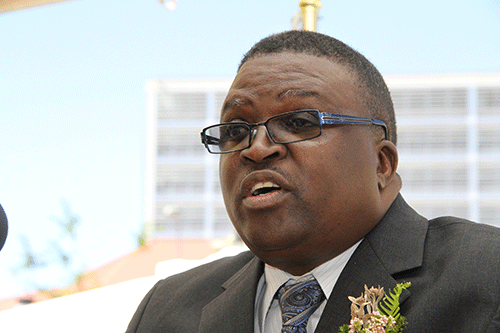For the 2021/22 financial year, the northern town of Ongwediva was brushed with an adverse opinion by auditor general Junias Kandjeke.
In essence, it means the council’s financial books contain misrepresentations and misstatements that do not accurately reflect its financial performance and health.
“The financial statements do not present fairly, in all material respects, the financial position of the Ongwediva Town Council as at 30 June 2021 and 2022,” Kandjeke states in the audit report.
Compiled and completed in August, Ongwediva’s findings are found in a report tabled by the National Assembly for scrutiny earlier this week.
Poking holes in Ongwediva’s accounting processes, the auditors hinged their adverse opinion on five shortcomings.
Firstly, the Office of the Auditor General took issue with an entity owned by Ongwediva Town Council, Namfair Pty Ltd, whose role has since been replaced by a supervisory committee managing the operations of the town’s popular trade fair.
During the period under review, Namfair was disclosed as an investment in associates with a book value of N$4.67 million.
But there is a shortcoming, according to Kandjeke.
“International Public Sector Accounting Standards 36
defines associates as an entity over which an investor has significant influence. It further defines significant influence as the power to participate in the financial and operational policy decisions of another entity, but it is not control or joint control of those policies,” Kandjeke said.
Significant influence is a shareholding of 20% to 50%.
However, it was found that Ongwediva Town Council has full control over Namfair with 100% shareholding. As such, Namfair is a subsidiary of the council – not an associate, Kandjeke said.
More so, the auditors observed that the transactions of the Ongwediva Annual Trade Fair were not consolidated with the books of the town council.
“No annual reporting was provided to the auditors,” which is in direct contravention of IPSAS 35, which states that “an entity that is controlling entity shall present consolidated financial statements.”
Depreciation
Another shortcoming detected by the auditors at Ongwediva is that the council’s land is currently being depreciated, as it is combined with the value of the buildings.
“Land has an unlimited useful life and, therefore, it is not depreciated. Buildings have limited useful life and are, therefore, depreciable assets… the carrying amount of land and buildings is, therefore, not fairly presented,” the auditor uncovered.
Additionally, the council failed to disclose its open land in the fixed asset register.
The local authority did also not recognise a provision of its dumping site for rehabilitation and restoration after its useful life.
– emumbuu@nepc.com.na


